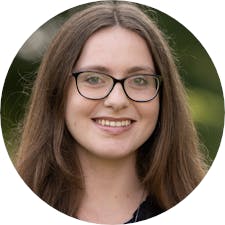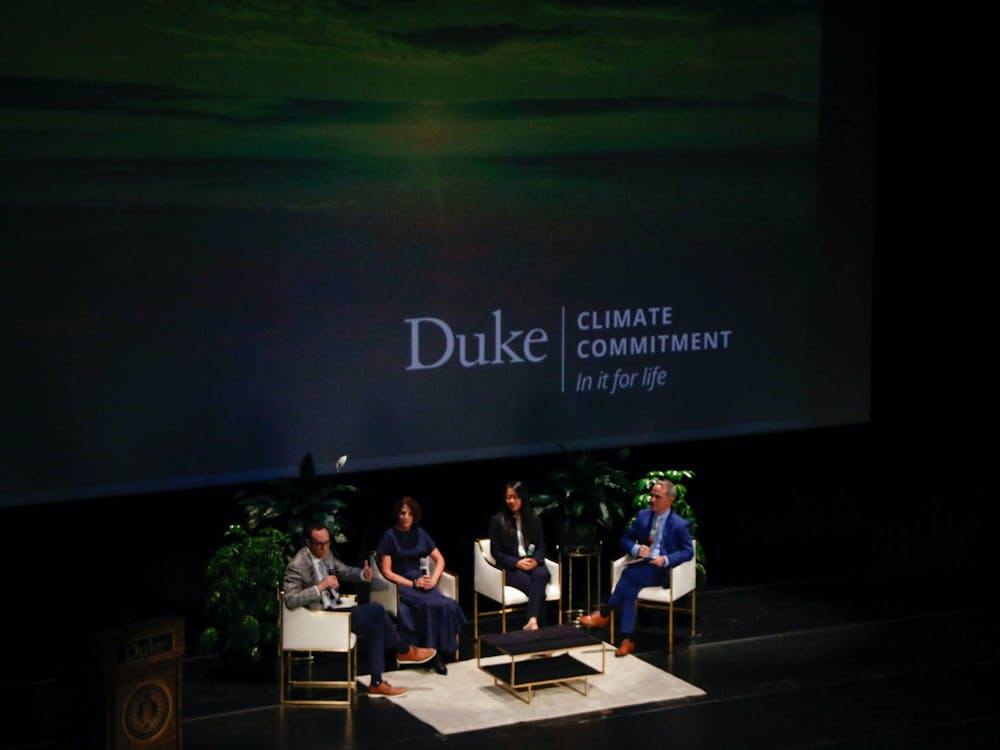The Office of Climate and Sustainability held the third installment of its investment seminar series Tuesday evening, which focused on questions of climate market potential and the role of mission-driven institutions in responsible investment practices.
Duke students, faculty and staff met in the Brodhead Center’s Bolton Family Tower Room for the conversation, which featured guest expert Jason Scott, Trinity ’90. Scott has been active in climate and sustainable investing spaces since graduating from Duke, serving multiple roles at Renewable Resource Group and Spring Lane Capital.
“There has been a fundamental shift, I think, in the last 18 to 24 months around what people think about in terms of risk in climate investing,” Scott said.
Scott identified two macro-level changes that contributed to this shift. First, federal policy has moved in favor of investing in sustainable products and industries, evidenced by the 2022 Inflation Reduction Act’s emphasis on renewable infrastructure and regulatory changes under the Biden administration. The economic angle has also proved persuasive, as renewable energy sources like wind and solar are quickly becoming more cost-effective than fossil fuels.
Second-year master’s student Meera Ayyagari, who is director of environment and sustainability for the Graduate and Professional Student Government and one of the night’s moderators, agreed with Scott, drawing upon her experience attending the United Nations Climate Change Conference in Dubai, United Arab Emirates, with a Bass Connections course last December.
“What I’ve repeatedly heard is that investors all around the world are seeing investments in renewable energy as not so risky as it previously was, and more and more of them are coming in to invest in this field,” Ayyagari said.
Ronnie Chatterji, Mark Burgess and Lisa Benson-Burgess distinguished professor of business and public policy, assisted Ayyagari as the event’s other moderator. Having recently worked on the CHIPS and Science Act under the Biden administration, he brought insights into the importance of public-private partnerships in supporting innovation in climate markets.
Participants discussed the role universities can play in driving investments in the climate sector by stepping into what Scott termed the “missing middle” of finances and talent between small venture capital firms and more traditional large-scale asset managers.
He explained that many firms are establishing “carbon budgets” to give to their portfolio managers. Such internal carbon pricing systems have proven effective in ensuring that climate impact is factored into investment decisions, much akin to how institutions calculate financial returns.
Scott noted that university endowments are prime candidates for such policies, and expressed his support for largely student-led divestment campaigns on campuses across the country. Duke’s own divestment campaign began 11 years ago under the leadership of student group Duke Climate Coalition and has continued through fall 2023.
“I think the interdisciplinary, interschool conversation is Duke’s best chance to have a big impact, and that’s what I’m most interested in personally is how we mobilize alumni … students and faculty across these schools,” Scott said.
The OCS will continue facilitating conversations like these with the fourth session in their year-long series, which is set to take place Feb. 6 at 6 p.m. and will explore definitions of climate risk in an investment context.
Get The Chronicle straight to your inbox
Signup for our weekly newsletter. Cancel at any time.

Zoe Kolenovsky is a Trinity sophomore and news editor of The Chronicle's 120th volume.

